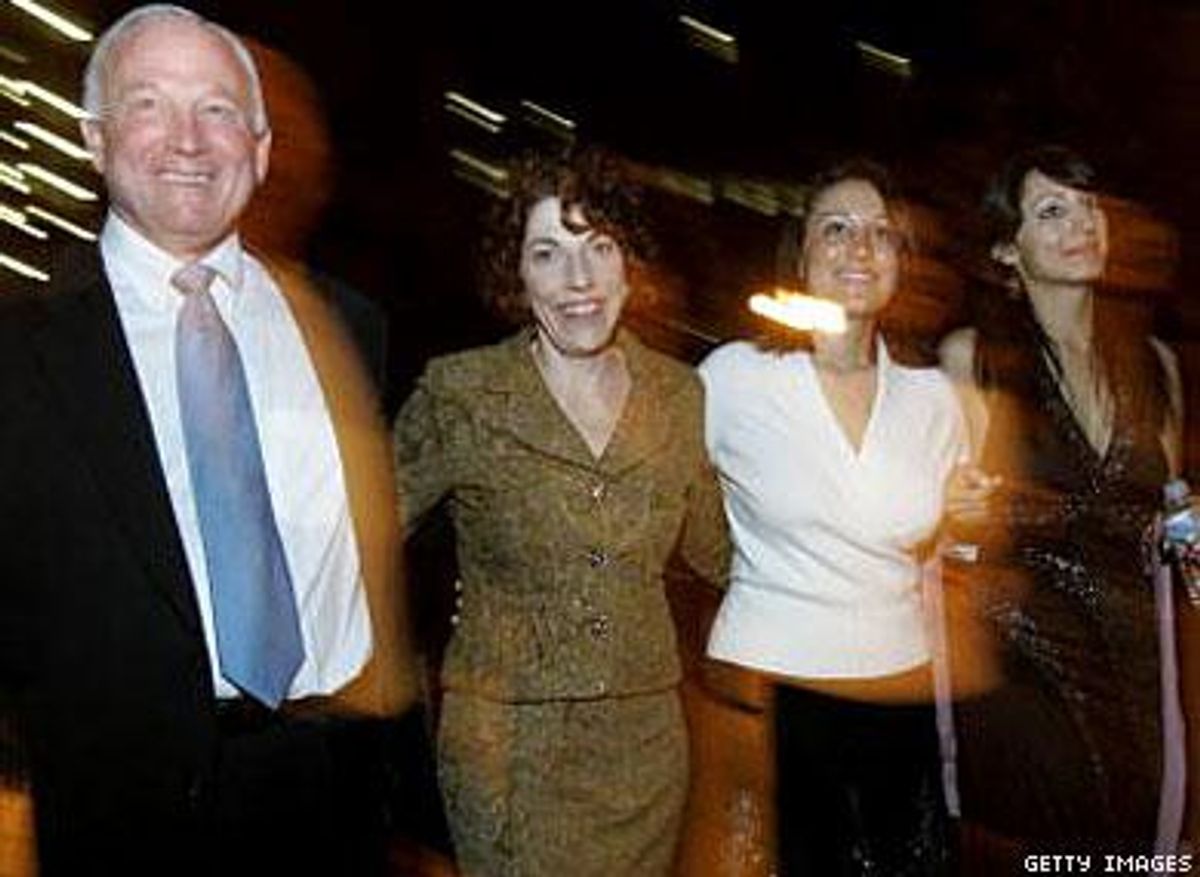A quiet man who mows
his own lawn on Sundays while chatting with neighbors on the
sidewalk, 58-year-old Jerry Sanders seems more like a
small-town conservative than a gay rights pioneer at the helm
of the nation's eighth-largest city. But his dramatic change of
position on gay marriage last year was enough to throw the
down-to-earth mayor of San Diego into the national spotlight.
Suddenly religious leaders and his fellow Republicans were
denouncing him while gay rights activists hailed him as a hero.
And with a fight to preserve marriage equality looming in
California on November 4, Sanders has stepped up again to prove
that Republicans can make the most powerful allies.
The turnabout began in
September 2007 at Sanders's home, where he was hosting a
meeting for a large group of the city's gay leaders. A former
police chief who has long advocated for gays in the city,
Sanders wanted to explain the politics that necessitated his
veto of a city council resolution in support p of same-sex
marriage. Their reaction, he says, was cathartic.
"They were in a lot
of pain," Sanders says, recalling stories he heard about his
guests' relationships and their families. "I just decided I
couldn't veto the resolution. It wasn't what I felt. I decided
that being mayor wasn't the most important thing in my
life."
The next day-one day
before kicking off his bid for reelection-Sanders choked back
tears in front of a cluster of news cameras. His concern for
the gay and lesbian people in his life-including his lesbian
daughter, Lisa-had caused him to change his mind on marriage
equality, he told the media.
"A lot of friends
have told me that they showed their families the video of that
day and it just [floored them]," Lisa says, adding that she
is "unbelievably proud" of her father. "I think everyone
can relate to loving your child and wanting them to be happy.
It really speaks to people. In the end I think it actually
helped him win reelection in June."
"When you look at a
constitution you can read anything into it," Sanders says
from his 11th-floor office in the heart of downtown San Diego.
"But when you look in the face of a family member, it's very
different."
Indeed, when Sanders
looked his daughter in the eyes he decided he would rather risk
his political career than deny her the happiness he's enjoyed
with his wife of 15 years, Rana Sampson. (Lisa, 25, has been
with her girlfriend, Meaghan, for more than two years; they
have no immediate plans to get married.) Now he's bringing that
same personal conviction to the fight against Proposition 8,
which if passed on November 4 would amend California's
constitution to eliminate marriage equality in the state just a
few months after the state supreme court put it in place.
While the California
Republican Party has taken an official "Yes on 8" position,
that decision has only fired up Sanders and his daughter to
attend fund-raisers and speak out against the marriage ban
whenever they can. "I don't think the party has come around
that much [on same-sex marriage]," Sanders says. "But I do
think many Republicans are pro-same-sex marriage because they
have gay family members or friends that they love and
respect."
Dale Kelly Bankhead,
the statewide campaign manager for No on 8, agrees. She says
people like Sanders are key to defeating the proposition. "It
reflects an important element of this campaign," she says.
"This is not a nameless policy discussion. This is about
neighbors, family, friends, and coworkers."
Sanders's stance marks
amazing progress in San Diego politics from just eight years
ago, says George Biagi, deputy director of the city clerk's
office, who once worked for Sanders. In 2000 mayoral candidate
Dick Murphy won the election after zealously supporting the
antigay Knight Initiative, which defined marriage in California
law-although not in the constitution-as a union between a man
and a woman. It passed by a large margin.
"Once again the issue
made its way into the mayor's race," Biagi says, "but this
time the mayor was [and still is] on the other side of the
issue."
And this time so are
the voters, says Sanders, whose modest home in San Diego's
Kensington neighborhood now sports a "No on 8" placard in
the front yard. Polls show majority opposition to the marriage
ban, while volunteers with the No on 8 campaign report an even
split among Republicans. "A tremendous number of Republicans
are going to vote no on 8 because they've got family members
[who are gay]," he says. "I just think we're at that point
where people are valuing family more than they're valuing party
politics."


















































































Here's our dream all-queer cast for 'The White Lotus' season 4